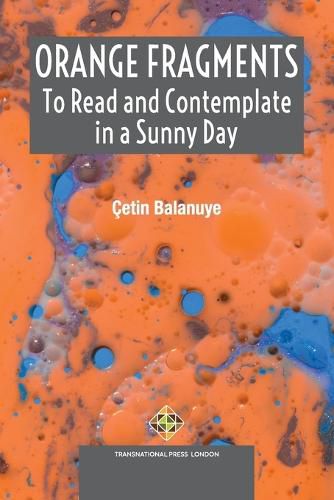Readings Newsletter
Become a Readings Member to make your shopping experience even easier.
Sign in or sign up for free!
You’re not far away from qualifying for FREE standard shipping within Australia
You’ve qualified for FREE standard shipping within Australia
The cart is loading…






"In Balanuye's work the reader finds effective insights into the nature of the overblown tailless monkey politely called the human race. The fragments sometimes enunciated as a chastising bolt, but mostly as a comedic nudge. And with each we have to sit up and listen - and think. That is what we deserve, do we not?" - Hueseyin Icen, Turkish translator of The Picture of Dorian Gray
"An admirably collage-like and astringent contribution to the tradition, which reaches back at least to Heraclitus, of aphorism and epigram." - David Shields, Author of Reality Hunger
Philosophers are generally expected to engage in the three pursuits together and meticulously for a sufficient amount of time: reading, thinking, and arguing for or against by writing or speaking.
According to this approach, it is possible for everyone to practice a philosophical life. Because the said approach does not allow an "all or nothing" type of rigidity; some may be more involved in this pursuit, some less. In any case, there is a difference of degree rather than a difference of type.
It should be kept in mind that in the definition put forward, reading, thinking and discussion are nonetheless necessary but not sufficient elements to be an original philosopher. Allocating a serious place to all three elements in her life does not guarantee an original philosopher. Authenticity is a gem we still don't know enough about.
The book in your hand consists of fragments, the shortest of which is a sentence and the longest of which is a few paragraphs. I wanted these fragments to invoke longer readings, reflection practices, and perhaps discussions, triggered by shorter readings.
CONTENTS
A BITE TO REPLACE THE PROLOGUE CHAPTER I: REALITY CHAPTER II: ENCOUNTERS CHAPTER III: CONTEXT
ABOUT THE AUTHOR: Balanuye is a Turkish continental European philosopher and academic. His book Where Does Spinoza's Joy Come From? [published in Turkish only] went through numerous editions and contributed to the adoption of Spinoza's teaching by outside readers as well as philosophers in Turkey. He currently teaches at the Department of Philosophy at Akdeniz University.
$9.00 standard shipping within Australia
FREE standard shipping within Australia for orders over $100.00
Express & International shipping calculated at checkout
"In Balanuye's work the reader finds effective insights into the nature of the overblown tailless monkey politely called the human race. The fragments sometimes enunciated as a chastising bolt, but mostly as a comedic nudge. And with each we have to sit up and listen - and think. That is what we deserve, do we not?" - Hueseyin Icen, Turkish translator of The Picture of Dorian Gray
"An admirably collage-like and astringent contribution to the tradition, which reaches back at least to Heraclitus, of aphorism and epigram." - David Shields, Author of Reality Hunger
Philosophers are generally expected to engage in the three pursuits together and meticulously for a sufficient amount of time: reading, thinking, and arguing for or against by writing or speaking.
According to this approach, it is possible for everyone to practice a philosophical life. Because the said approach does not allow an "all or nothing" type of rigidity; some may be more involved in this pursuit, some less. In any case, there is a difference of degree rather than a difference of type.
It should be kept in mind that in the definition put forward, reading, thinking and discussion are nonetheless necessary but not sufficient elements to be an original philosopher. Allocating a serious place to all three elements in her life does not guarantee an original philosopher. Authenticity is a gem we still don't know enough about.
The book in your hand consists of fragments, the shortest of which is a sentence and the longest of which is a few paragraphs. I wanted these fragments to invoke longer readings, reflection practices, and perhaps discussions, triggered by shorter readings.
CONTENTS
A BITE TO REPLACE THE PROLOGUE CHAPTER I: REALITY CHAPTER II: ENCOUNTERS CHAPTER III: CONTEXT
ABOUT THE AUTHOR: Balanuye is a Turkish continental European philosopher and academic. His book Where Does Spinoza's Joy Come From? [published in Turkish only] went through numerous editions and contributed to the adoption of Spinoza's teaching by outside readers as well as philosophers in Turkey. He currently teaches at the Department of Philosophy at Akdeniz University.